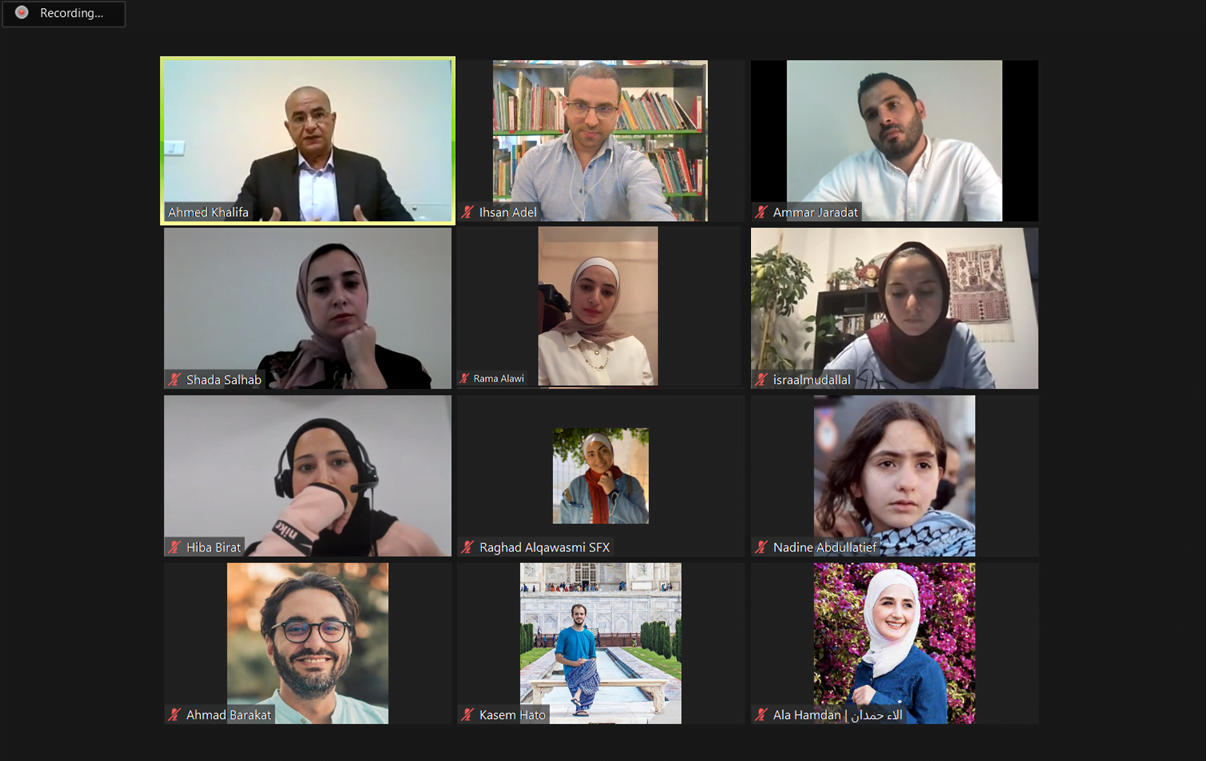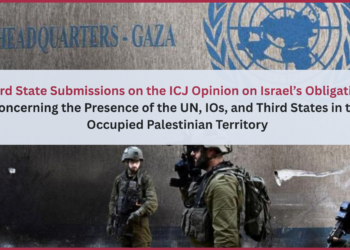Law for Palestine holds a training for journalists and influencers on “How to address the Palestine question from a legal viewpoint”
Friday – October 1, 2021
Law for Palestine, a UK-based organisation, held a special training with a group of journalists and social media activists and influences on how they can address and present the Palestinian cause from an international law and human rights perspective.
Dr. Ahmad Khalifa, the expert in international humanitarian law and lecturer in international criminal law at Ain Shams University in Cairo, shed light on the basic concepts in international law that are relevant to the Palestinian issue, including international humanitarian law, international human rights law and international criminal law.
Dr. Khalifa also reviewed the concepts pertaining to crimes against humanity and war crimes, stressing the importance of distinguishing between these types of crimes and other criminal offences. Dr. Khalifa concluded his presentation by highlighting the role of the International Criminal Court (ICC) in the context of its investigation of crimes believed to have been committed in Palestine since 2014.
The second speaker, Hiba Birat, a Palestinian-American lawyer and the executive director for Law for Palestine, addressed several confusing issues, indicating the limits of what is permitted and what is otherwise prohibited in accordance with the rules of international law, including terms pertaining to anti-Semitism, prohibition of incitement, hate speech, and the legal position on armed resistance.
Birat stressed that emotional appeals, however important they are, still do not necessarily go hand in hand with international law, which requires journalists and influencers to be aware of these issues. At the same time, they can use their social media accounts to bring international law to the fore when engaging in issues on Palestine.
Ihsan Adel, International Humanitarian Law Expert and Chair of Law for Palestine, touched on some technical/legal issues in writing that journalists and influencers should pay attention to, in order to avoid committing a crime of incitement to violence or hatred, or any other actions that initial legal accountability.
The final part of the training was dedicated to Q&As from the audience and discussions of other relevant issues between participants and experts about the importance of raising awareness of legal issues related to Palestine. Given the importance of correct legal framing, influencers and journalists now can write consciously and avoid making mistakes that may represent legal violations and entail responsibility in accordance with the relevant rules of international law.
Training journalists Palestine legal





